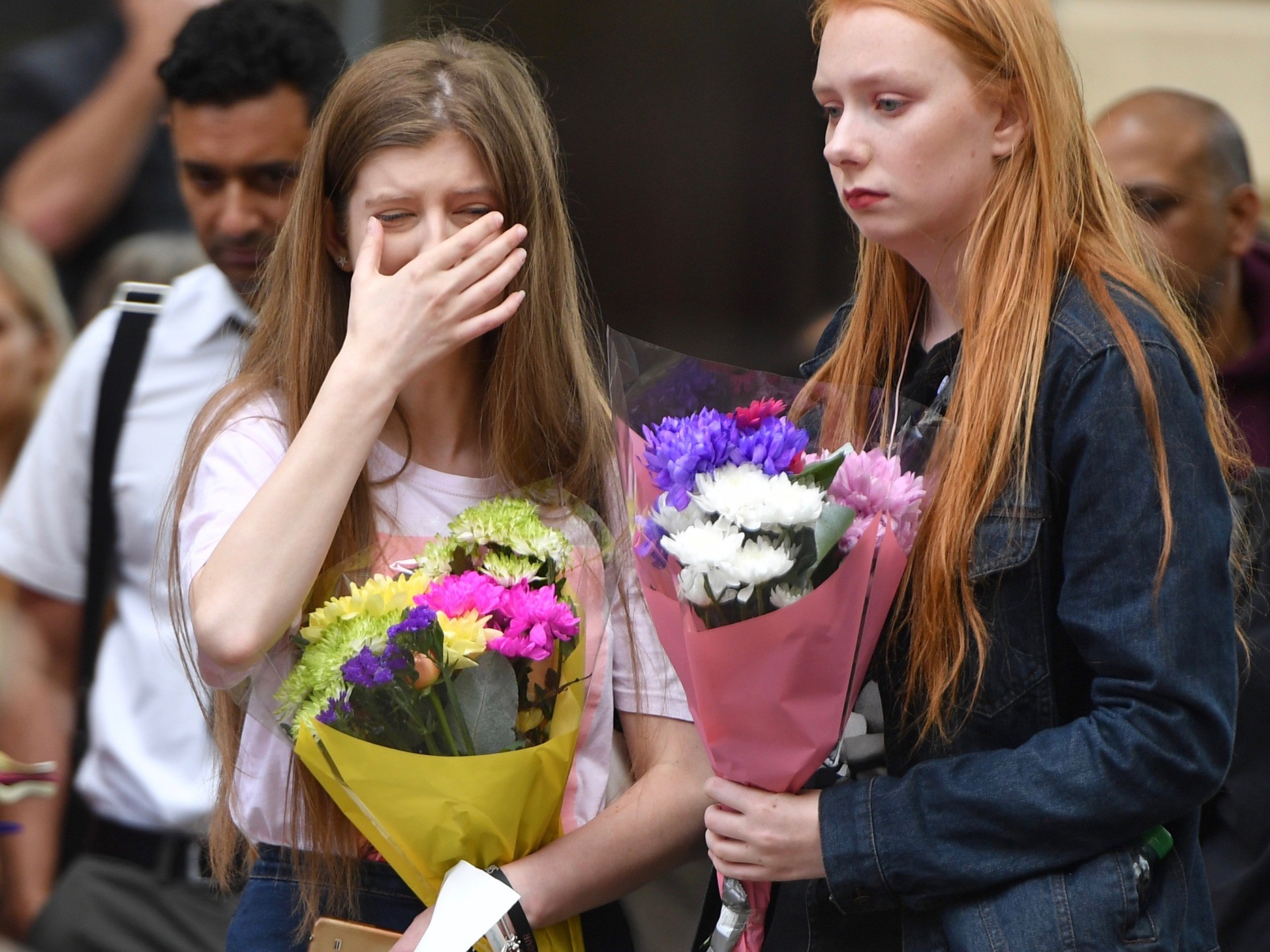The corporation which operated the Manchester Arena has been accused of “unacceptable and unjustified” security failures in the leadup to the 2017 Islamist bombing of an Ariana Grande concert, an independent inquiry was told.
The inquiry into the 2017 suicide bombing by Libyan migrant Salman Abedi which left 22 mostly young people dead and hundreds more injured, heard that SMG, which operated the arena, has continued to “deny and shift blame” despite mounting evidence of security failures.
Peter Weatherby QC, who is representing seven families in the inquiry, said that it was “blindingly obvious” that SMG should have employed an in-house counter-terrorism expert to look after the arena, the Manchester Evening News reported.
“SMG took the money for ensuring security and public safety in the City Room [the arena’s foyer] but very plainly failed to discharge those responsibilities.
“If they had, then the bombing could not have happened because Salman Abedi could not have entered and remained in the City Room with his large device prior to detonation for two extended periods totalling about an hour and 20 minutes,” he added.
Mr Weatherby went on to allege that SMG allowed a blind spot in the arena’s CCTV security systems “for many years” and that it was so “obvious” that “even Salman Abedi spotted it”.
“If that blind spot had been dealt with, then he should have been easily spotted,” he said.
The inquiry also heard that despite the national terror threat level being raised from substantial to severe — meaning that an attack was highly likely — the operators of the arena did not take on any additional security staff.
Duncan Atkinson QC, representing six of the bereaved families, said that instead of strengthening security: “SMG’s focus was on reducing its costs, including through staff reductions.”
Atkinson also accused Showsec, the private security company that provided security for the Manchester Arena, of failing to “advise its client that the staffing levels were inadequate to keep attendees safe and that the proposed cuts would compromise safety”.
“Instead Showsec was overly focused on remaining competitive,” he added.
“The evidence has shown a security operation that was under-resourced, malcoordinated and insufficiently focused on counter-terrorism and especially the threat from person-borne improvised explosive devices.
“This made the arena an attractive target for terrorists and led to a series of missed opportunities to prevent, deter, detect and or mitigate the attack,” Atkinson said.
John Cooper QC, who is representing 12 families, claimed that the training of the security stewards carried out by Showsec had clear “gaps in content” and that there was no mechanism set in place to guarantee that the training was completed.
“Those stewards were employed on zero-hours contracts at minimum wage, and were expected to undertake the training online, in their own time, at their own expenses and using whatever devices were available to them,” Cooper said.
Cooper also revealed that on the day of the attack, only three patrols of the arena were carried out, rather than the required four. He also noted that patrols were “habitually not performed” at the Manchester Arena.
“There may be multiple reasons for this, ignorance, passivity, poor training, complacency, turning a willful blind eye, dereliction of duty, lack of funding, lack of communication, lack of leadership, a failure of systems, a failure of equipment, a failure to take responsibility and the overriding drive to penny pinch, a virulent and ultimately fatal cocktail.”
“This is a matter of passing the buck, or saving a buck,” Cooper lamented.
Both companies have denied the accusations of “penny-pinching” during previous iterations of the inquiry.
Earlier revelations during the inquiry have shed light on the system-wide failure on behalf of the government, as well.
The Islamist attacker, Salman Abedi, was flagged by Britain’s MI5 intelligence agency 18 times during the seven years leading up to the fatal bombing. Reports have also shown that MI5 had multiple opportunities to possibly prevent the attack.
The Manchester police force has also taken some of the blame for the attack, as it was revealed that no officers were present while Abedi entered the arena, while an officer took a two-hour unauthorised break.
Security officers at the venue, who reportedly had a “bad feeling” about the would-be terrorist, refrained from taking action as they were “scared” that they might be labelled “racist” for doing so.
Then, once the attacks had taken place, the health service failed to give the proper care to victims, leading to at least one — eight-year-old Saffie Roussos — bleeding to death over several hours after being caught in the blast but not being treated adequately, or given blood transfusions.
The brother of the attacker, Hashem Abedi, was found guilty last year of helping plot the terrorist attack and was sentenced to a minimum of 55 years in prison in August 2020.
The inquiry continues.
Follow Kurt Zindulka on Twitter here @KurtZindulka
